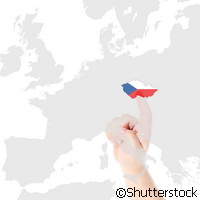Towards a sustainable bioeconomy in Europe: how the Czech Republic is making the difference
The Czech Liaison Office for Research and Development (R&D) and the Permanent Representation of the Czech Republic to the European Union recently held a special conference on the country's contribution to moving Europe towards a sustainable European bioeconomy. In light of the European Commission's February 2012 Bioeconomy Action Plan launch, the aim was to highlight some of the work being carried out across various Czech research institutes to meet the central objective of the action plan: shifting the European economy towards greater and more sustainable use of renewable resources. A bioeconomy is an economy that uses biological resources from the land and sea, as well as waste, as inputs to food and feed, and industrial and energy production. Jakub Durr, Deputy Permanent Representative of the Czech Republic to the EU, highlighted the all-encompassing nature of the bioeconomy, citing 'the food sector, sustainable agriculture, forestry and fisheries' as just some of the areas where it can make a difference. 'We waste and we over-exploit,' said Maive Rute, director of the Directorate-General for Research and Innovation's 'Biotechnologies, Agriculture, Food' Directorate. 'For example, in France agriculture accounts for 18 % of water pollution and generates EUR 1 billion of extra costs in bottled water for the population.' Maive Rute also emphasised that increasing the resilience, sustainability and productivity of the food chain was essential, particularly given that the food industry is one of the largest job providers in Europe. The Czech institutions leading the way in the field are the Central European Institute of Technology (CEITEC) in Brno, a specialist centre in life sciences and advanced materials and technologies research; the Institute of Chemical Technology (ICT) in Prague; CzechGlobe - Global Change Research Centre in Brno, a centre whose primary objective is to obtain deep knowledge of global climate change issues; the Czech University of Life Sciences Prague (CULS); and the Academy of Sciences of the Czech Republic (ASCR) in Ceské Budejovice. Some examples of projects carried out with support from the Seventh Framework Programme (FP7) were discussed at the conference. MOBITAG ('Building up modern biotechnologies for agriculture'), which received almost EUR 1 million of funding under the FP7's 'Capacities' Theme, helped enhance research at the ASCR by allowing development and deployment of novel biotechnologies with particular emphasis on genome analysis, exploitation of natural compounds, transgenosis, and safety aspects of genetically modified organisms (GMOs). Another major project that carried out work in the Czech Republic is the CONFFIDENCE ('Contaminants in food and feed: inexpensive detection for control of exposure') project, which receives close to EUR 6 million of funding under the 'Food, agriculture and fisheries, and biotechnology' Theme of FP7. The ICT in Prague is one of the main project partners. The project aim is to find long-term solutions to the monitoring of persistent organic pollutants, perfluorinated compounds, pesticides, veterinary pharmaceuticals (coccidiostats, antibiotics), heavy metals and biotoxins (alkaloids, marine toxins, mycotoxins) in high-risk products such as fish and fish feed. Frantisek Sehnal from the Association of Czech Biotech Companies (CzechBio) also spoke about the strong position the Czech Republic maintains in the field of cutting-edge biological research. On behalf of the Danish Presidency, Niels Gotke from the Danish delegation to the Standing Committee of Agricultural Research (SCAR) presented some of the outcomes of the 'Bioeconomy in Action' conference held in Copenhagen from 26 to 28 March. He said that the Copenhagen Declaration 'calls for the bioeconomy to be better integrated into European policies, in particular the CAP [(Common Agricultural Policy)], and that a common bioeconomy strategy is needed to stimulate competitiveness and environmental sustainability.' A sustainable bioeconomy would reconcile demands for sustainable agriculture and fisheries, food security, and the sustainable use of renewable biological resources for industrial purposes, while ensuring biodiversity and environmental protection. The Commission's action plan is built around three main aspects: developing new technologies and processes for the bioeconomy; developing markets and competitiveness in bioeconomy sectors; and pushing policymakers and stakeholders to work more closely together.For more information, please visit:Czech Liaison Office for Research and Development (R&D):http://www.czelo.cz/homepage/Permanent Representation of the Czech Republic to the European Union:http://www.mzv.cz/representation_brussels/en/index.html
Countries
Czechia



